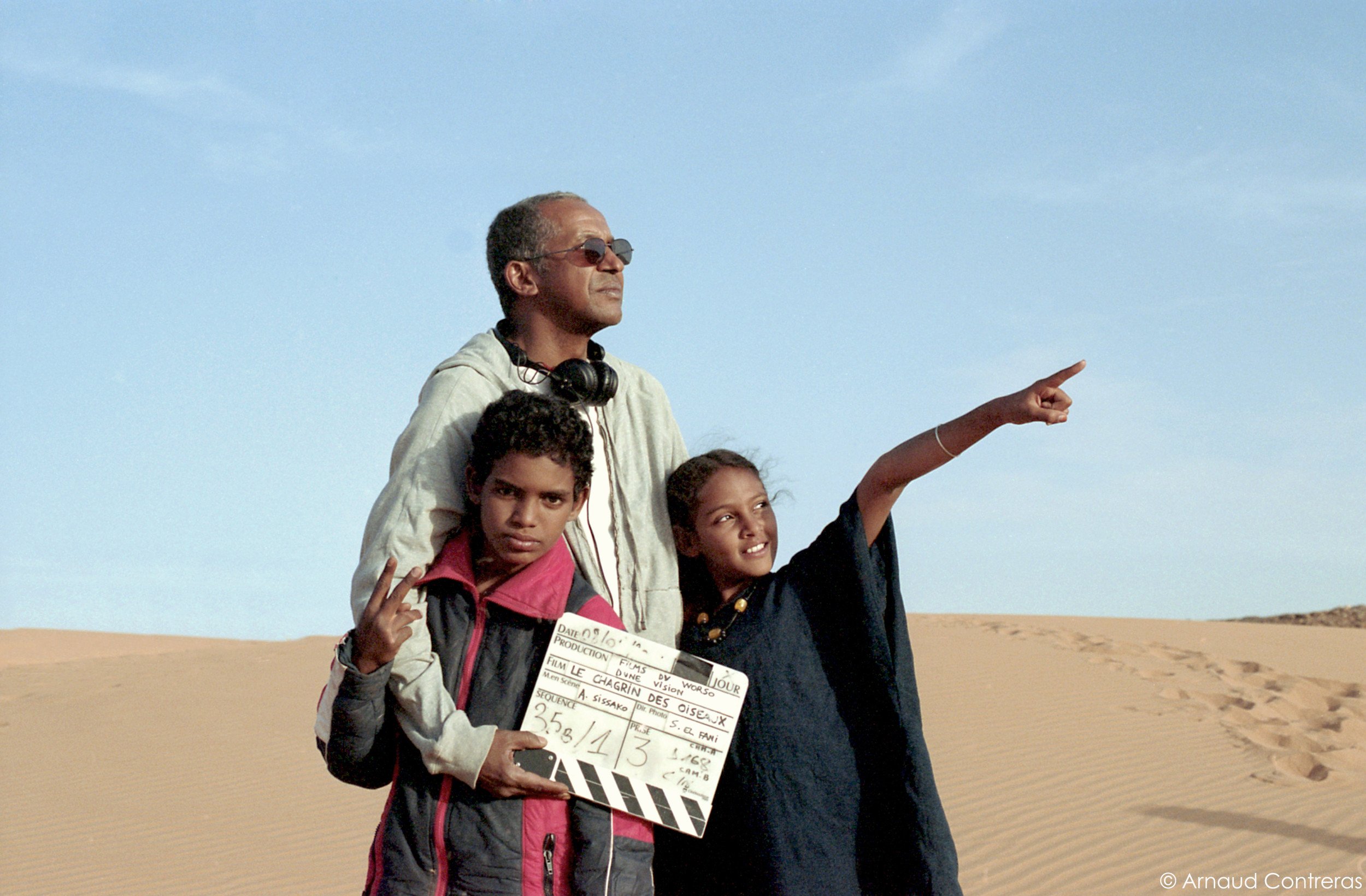Abderrahmane Sissako / Timbuktu
Abderrahmane Sissako was born in Kiffa, Mauritania, in 1961 but was raised in his father’s homeland, Mali. Returning to Mauritania in 1980, he had difficulties adjusting and turned to literature and film for comfort. A study grant from the Institute of the University of Moscow, was his ticket out.
His graduate student project, Le Jeu (1989), won the prize for best short at the Giornate del Cinema Africano of Perugia in 1991. And, in 1993, his second film, October was shown at Locarno. In 2002, he screened Waiting for Happiness in Cannes and won the FIPRESCI award for best film in the Un Certain Regard section.
Bamako (2006) represented a move away from autobiography covering as it did the legacy of colonialism and the lopsided relationship between the first and third worlds.
Timbuktu (2015) was nominated for an Oscar in the Foreign Language category.
Abderrahmane Sissako was born in Kiffa, Mauritania, in 1961 but was raised in his father’s homeland, Mali. Returning to Mauritania in 1980, he had difficulties adjusting and turned to literature and film for comfort. A study grant from the Institute of the University of Moscow, was his ticket out.
His graduate student project, Le Jeu (1989), won the prize for best short at the Giornate del Cinema Africano of Perugia in 1991. And, in 1993, his second film, October was shown at Locarno. In 2002, he screened Waiting for Happiness in Cannes and won the FIPRESCI award for best film in the Un Certain Regard section.
Bamako (2006) represented a move away from autobiography covering as it did the legacy of colonialism and the lopsided relationship between the first and third worlds.
Timbuktu (2015) was nominated for an Oscar in the Foreign Language category.
Abderrahmane Sissako was born in Kiffa, Mauritania, in 1961 but was raised in his father’s homeland, Mali. Returning to Mauritania in 1980, he had difficulties adjusting and turned to literature and film for comfort. A study grant from the Institute of the University of Moscow, was his ticket out.
His graduate student project, Le Jeu (1989), won the prize for best short at the Giornate del Cinema Africano of Perugia in 1991. And, in 1993, his second film, October was shown at Locarno. In 2002, he screened Waiting for Happiness in Cannes and won the FIPRESCI award for best film in the Un Certain Regard section.
Bamako (2006) represented a move away from autobiography covering as it did the legacy of colonialism and the lopsided relationship between the first and third worlds.
Timbuktu (2015) was nominated for an Oscar in the Foreign Language category.



